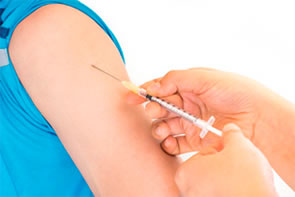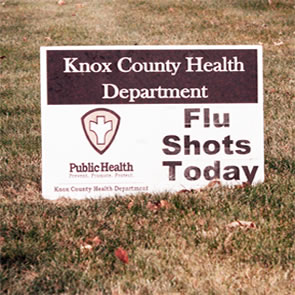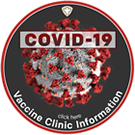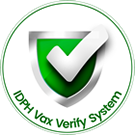
Immunizations
How Do Vaccines Work?
Vaccines prevent disease by boosting an individual's own immune system to properly react and respond to infectious agents. They contain either dead or weakened versions of antigens (foreign substance) or parts of antigens that cause disease.
Once they are injected, the vaccine produces a similar response to the disease, allowing an individual's immune system to recognize, remember, and respond to the antigen. Thus, immunity can be developed without suffering from the actual disease.
Childhood Immunizations
Vaccine-preventable childhood diseases still exist within the United States, making it important for children, to receive recommended immunizations on time.
Childhood Vaccination Schedule
indicates the recommended ages for routine vaccination for children through 18 years of age.
We provide the following immunizations:
Chicken Pox (Varicella)
Hepatitis A
Hepatitis B
Gardasil (HPV)
Haemophilus Influenza B (HIB)Measles, Mumps, Rubella (MMR)
Polio (IPV)
Rotavirus
Pneumococcal (Prevnar)Tetanus, Diphtheria, Pertussis (Tdap)
Adult Immunizations
Adults need to continue receiving immunizations throughout their lives.
Booster vaccinations and adult specific disease vaccinations allow for a healthier and improved quality of life.
Adult Immunization Scheduleshould be reviewed with your healthcare provider or with Knox County Health Department.







